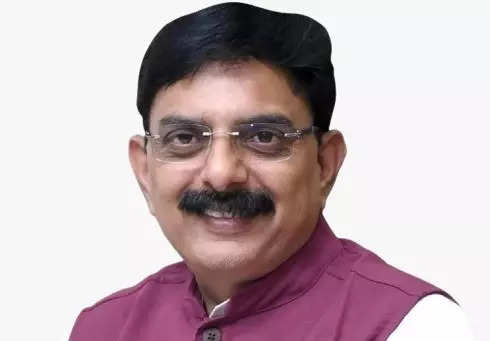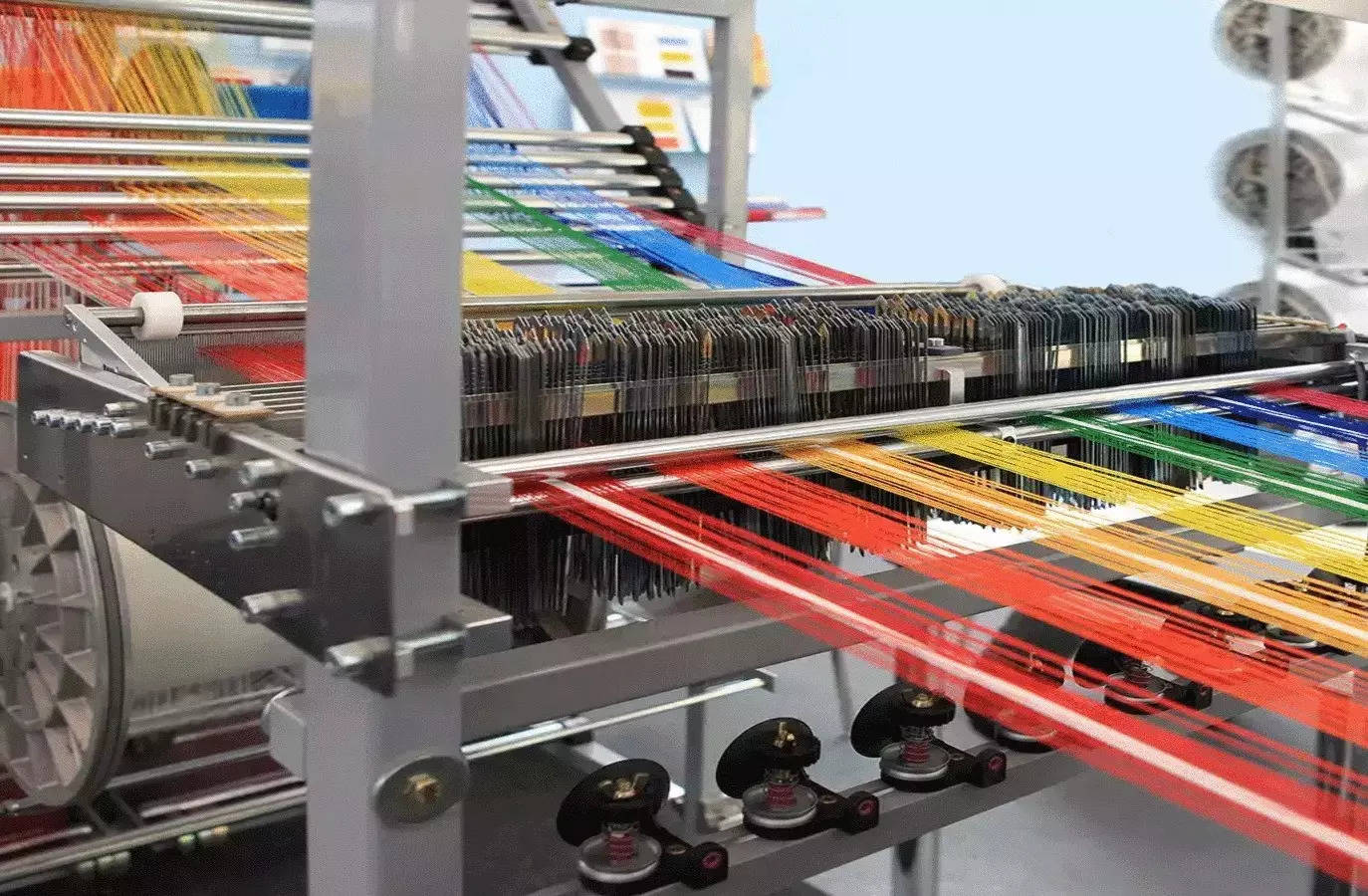
“To bring ease of doing business to the investors, industrialists and small entrepreneurs in the textile sector, the Government of Maharashtra has launched the e-textile portal which provides end-to-end process automation from registration of units to subsidy disbursement.
“We are also working on integrating sustainability as a key concept while promoting value-added products to position the state competitively in global markets. With these initiatives, Maharashtra is well-equipped to expand its leadership in India’s textile sector.”
This was stated by Sanjay Savkare, Minister of Textile, Government of Maharashtra, in conversation with Anoop Verma, Editor-News, ETGovernment. In the interview that follows, Sanjay Savkare sheds light on the initiatives that the State Government is taking to grow the textile sector in the state.
Edited excerpts:
The textile industry in Maharashtra is making significant contributions to not just the state’s economy but to India’s overall economy. The state is India’s major hub for textile production. What measures are you taking to further grow the textile sector in the state?
Maharashtra has always been a cornerstone of India’s Textile Industry and contributes over 10% of the country’s textile production. To further enhance our position, we are working on modernizing production processes while preserving our traditional textile heritage. The state provides incentives to each sub-sector of textiles including spinning, powerloom, garmenting, non-conventional textiles, handloom, technical textiles, sericulture and other areas.
Seeing the growing importance of technical textiles and their application across sectors, the State has proposed the setting up of six Technical Textile Parks. The EoI for the same has been floated, and we invite industry leaders to participate in it.
To bring ease of doing business to the investors, industrialists and small entrepreneurs in the textile sector, the Government of Maharashtra has launched the e-textile portal which provides end-to-end process automation from registration of units to subsidy disbursement. We are also working on integrating sustainability as a key concept while promoting value-added products to position the state competitively in global markets. With these initiatives underway, Maharashtra is well-equipped to expand its leadership in India’s textile sector.
Maharashtra has a rich textile heritage, particularly with its traditional textiles. What is the state doing to protect and promote these unique traditional fabrics?
Maharashtra’s textile heritage is a testament to the state’s cultural richness. Our traditional textiles such as Paithani, Ghongadi, Khana fabric, Himroo, and Karvat Kathi strongly reflect our history and play a vital part of the state’s economy. To promote these textiles, the state is launching an exciting initiative in collaboration with Prasar Bharti—a series focusing on traditional textiles of Maharashtra, ‘Kargha.’ This docu-drama series will reflect on various lenses of traditional textiles.

In addition, our state has introduced several key policies to support the livelihoods of traditional weavers. Through our Integrated & Sustainable Textile Policy 2023-2028, the state is providing financial incentives like a festival allowance for certified weavers, honoring exceptional designs during National Handloom Day, and introducing an oldage pension scheme for weavers over 60 years that aims to enhance social security, recognize excellence, and uplift Maharashtra’s weaving community, ensuring their sustained growth and well-being.
Under the policy certified weavers will also be given opportunities to train others as Master Trainers under the skill development initiative. These measures ensure both the social security of our weavers and the preservation of Maharashtra’s iconic textiles for future generations.
Given that the textile sector is largely unorganized, what measures do you believe are necessary to channelize this sector and bring about more structure and growth?
The textile sector in Maharashtra is largely unorganized, which creates challenges in terms of efficiency and growth. To address this, the state has taken steps to bring more structure to the sector by improving skilling in textiles as a core objective within the policy. We are focusing on the establishment of a textile skill committee and advisory council which will focus on skill development and capacity building to ensure a skilled workforce gets greater employment opportunities.
We have also signed MoUs with institutions like BTRA, VJTI, SASMIRA, DKTE, and others to improve the research and skill development landscape. Notably, DKTE has introduced the first-ever B.Tech in Technical Textiles in India which will help create a specialized workforce for the sector. By supporting both the industry and the workforce, the state is ensuring long-term growth and stability in the sector.
The Chief Minister of Maharashtra has recently directed the establishment of Maharashtra Technical Textile Mission (MTTM) and Maharashtra State Textile Development Corporation (MSTDC). What kind of impact will these entities have on the state’s textile industry?
Maharashtra has become the first state in India to launch its own Technical Textile Mission, aimed at positioning the state as a leader in this fast-growing sector on lines of the National Technical Textile Mission. The mission will focus on four main areas: Research and Development, Skill Development, Market Promotion, and Export Promotion. With an annual investment of ₹50 crores in R&D, the mission aims to develop new materials and technologies that meet global standards. It will also work to create a skilled workforce and promote the use of technical textiles in both domestic and international markets. This will create new opportunities for startups and businesses to expand in the technical textile sector.
The Maharashtra State Textile Development Corporation will serve as the executive arm of the Corporation, Marketing and Textiles Department (CMTD), Government of Maharashtra, for the promotion, development, monitoring, and regulation of the textiles industry in the state. The aim is to advance the current position of Maharashtra towards being a leading state for the textiles and apparel sector in India. Maharashtra already has three Centres of Excellence (CoEs) for technical textiles. These are Agrotech in Synthetic and Art Silk Mills’ Research Association (SASMIRA) in Mumbai, Geotech at Bombay Textile Research Association (BTRA), and Nonwovens at DKTE Society’s Textile & Engineering Institute in Ichalkaranji.
Bharat Tex 2025, India’s largest textile event, showcasing the country’s textile products across the entire value chain, is set to take place in Delhi in the middle of February. Maharashtra is India’s major textile hub. How do you plan to participate in Bharat Tex 2025?
The Government of Maharashtra is participating in Bharat Tex 2025 as a knowledge partner state, with its commitment to driving innovation, sustainability, and global competitiveness in the textile sector. As part of this role, Maharashtra will showcase its robust textile ecosystem, achievements, and opportunities through the Maharashtra pavilion, which will serve as a platform to highlight its traditional crafts, modern innovations, and investment potential.
The state’s involvement extends beyond exhibition activities. The Maharashtra state session will take place on 16th February 2025 and will focus on the critical issues such as sustainable practices, technological advancements, global market trends and policy frameworks to drive the textile industry forward. We will be hosting a curtain raiser for the Maharashtra Technical Textiles Mission at the event. We will unveil the first episode of the Kargha series, a collaboration with Prasar Bharati. This series will present the rich legacy of Maharashtra’s traditional textiles in a narrative format, highlighting occupational, cultural, and societal facets.
Maharashtra has started several textile parks. What kind of response are these parks having from the state’s textile manufacturers?
The textile parks developed across Maharashtra have received a highly positive response by attracting investments in spinning, weaving, processing, and garmenting. These parks offer world-class infrastructure, plug-and-play facilities, and access to raw materials, making Maharashtra a preferred destination for textile businesses.
To further strengthen the textile ecosystem, the state aims to promote the manufacturing of textile machinery within Maharashtra. By encouraging technology collaborations, offering incentives, and developing dedicated industrial clusters, we seek to reduce dependence on imports, enhance cost competitiveness, and position Maharashtra as a hub for advanced textile machinery production, supporting both domestic and global demand.


Comments